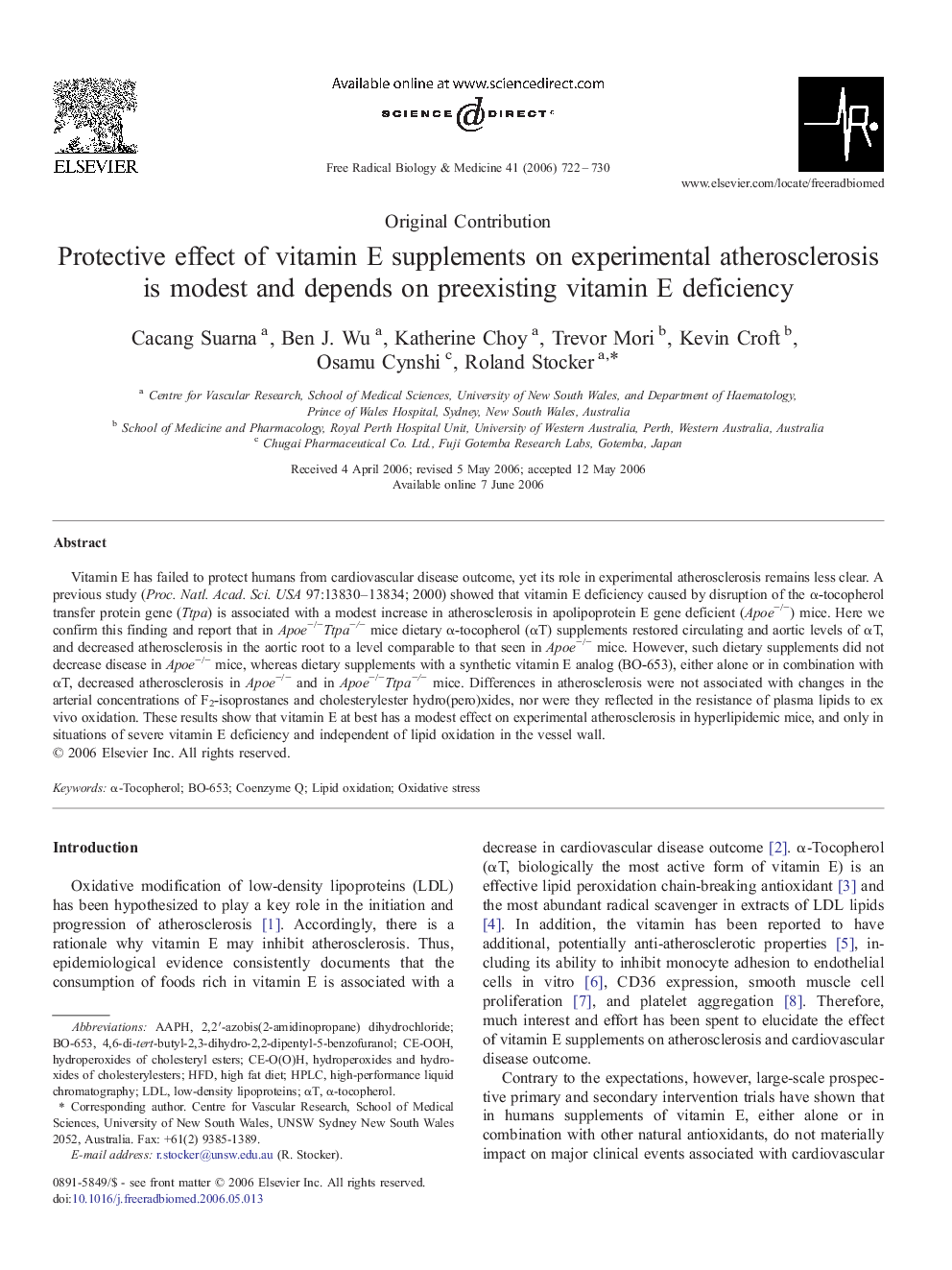| Article ID | Journal | Published Year | Pages | File Type |
|---|---|---|---|---|
| 1912037 | Free Radical Biology and Medicine | 2006 | 9 Pages |
Vitamin E has failed to protect humans from cardiovascular disease outcome, yet its role in experimental atherosclerosis remains less clear. A previous study (Proc. Natl. Acad. Sci. USA 97:13830–13834; 2000) showed that vitamin E deficiency caused by disruption of the α-tocopherol transfer protein gene (Ttpa) is associated with a modest increase in atherosclerosis in apolipoprotein E gene deficient (Apoe−/−) mice. Here we confirm this finding and report that in Apoe−/−Ttpa−/− mice dietary α-tocopherol (αT) supplements restored circulating and aortic levels of αT, and decreased atherosclerosis in the aortic root to a level comparable to that seen in Apoe−/− mice. However, such dietary supplements did not decrease disease in Apoe−/− mice, whereas dietary supplements with a synthetic vitamin E analog (BO-653), either alone or in combination with αT, decreased atherosclerosis in Apoe−/− and in Apoe−/−Ttpa−/− mice. Differences in atherosclerosis were not associated with changes in the arterial concentrations of F2-isoprostanes and cholesterylester hydro(pero)xides, nor were they reflected in the resistance of plasma lipids to ex vivo oxidation. These results show that vitamin E at best has a modest effect on experimental atherosclerosis in hyperlipidemic mice, and only in situations of severe vitamin E deficiency and independent of lipid oxidation in the vessel wall.
